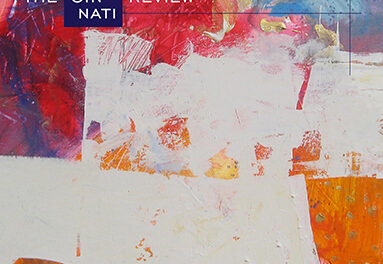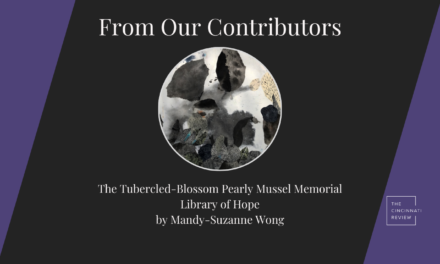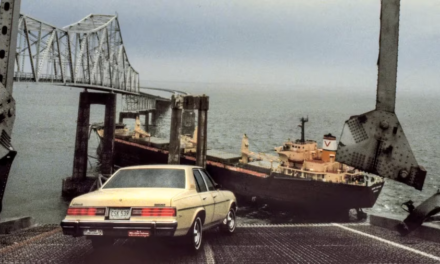 While recording commentary for his acclaimed Battlestar Galactica remake, creator Ronald D. Moore would treat himself to a tumbler of fine Scotch, and he would begin each episode’s podcast by telling you what that particular Scotch was. The Balvenie. Ardbeg. Highland Park. Lagavulin. Yes, life was good for Ronald D. Moore.
While recording commentary for his acclaimed Battlestar Galactica remake, creator Ronald D. Moore would treat himself to a tumbler of fine Scotch, and he would begin each episode’s podcast by telling you what that particular Scotch was. The Balvenie. Ardbeg. Highland Park. Lagavulin. Yes, life was good for Ronald D. Moore.
As The Cincinnati Review abides just north of the Bluegrass State, bourbon is the whiskey we give our contributors to inspire them as they look back on their work. Here, then, are the last six contributor’s comments for Issue 8.1, along with the bourbon pairings (okay, one’s a rye) that may have helped (consumption being optional, of course) to coax these comments forth.
Jaime Brunton (Eagle Rare Single Barrel): It is rare to see a wild animal—a swan or a loon or a deer—performing a task or making a ruckus without some identifiable purpose. When I watch animals, I feel their purposefulness as a gulf that separates us; I feel inadequate by comparison. What need justifies my speech? What weight do my words carry? Am I speaking only to myself? These are the questions that I grappled with when writing “The Mute Swan” (and that I, and other artists, must always grapple with as we attempt to make work that presents some fresh perspective and is, therefore, worth making). Interrogating my work in this way keeps me moving forward to the next poem. However, this pressure to say something “worthwhile” can also be stifling, especially if applied too heavily in the early stages of a project. I’m forever reminding my students (and myself) that writing should be an experiment, not a means to a single, predetermined end. As such, our writing has the potential to become many things, with any number of uses and effects we cannot begin to predict.
Tarfia Faizullah (Very Old Barton 100): In a letter to Erich Einhorn, Paul Celan wrote, “Everything is near and unforgotten.” My hope is that these two poems honor both the terror and beauty of Celan’s statement by allowing the past to rise into the present, even at a dinner party, even upon waking. One of the many things that I find incredible about language is that it can collapse the boundaries between time and space using metaphor, juxtaposition, even point of view, as these poems attempt to do. “Nocturne: Dinner Party” and “Aubade: Nightmare Pastoral” further owe a debt to graduate school for necessitating so many late nights and early mornings: the only times I was able to write alone and in silence.
Robert Glick (Knob Creek): “How to Wash” began as a collaboration with Camie Schaefer in which the text was printed directly onto a dress. I was fascinated by how our seemingly simple desire to keep our clothes spotless intersected with a set of cleaning instructions that implied a purity of body, a mode of scrubbing off everything that touched us. This return to Eden, this wipe of memory and experience led me to bleed poetic subject into object (as if they ever were separate entities) and to let incomplete metaphors spin out of control. In retrospect, I see the poem as perhaps an allegory of the body, as an expression of a semiplayful anxiety about how helpless we are in controlling how exterior forces mark us.
Mary Kaiser (Booker’s): These poems come from a sequence of dramatic monologues set at the nineteenth-century Shaker village at Pleasant Hill, Kentucky. When I spent a few days in one of the old dwelling-houses in 2007, I became fascinated with the play of light through the windows, with reflections and shadows in my walks through the village. As a result, “seeing things,” both real and imaginary, became one of the motifs in the collection. The speaker in “She Considers the Transmigration of Souls” is a young woman from Mississippi, formerly a spiritualist medium. She sees strange reflections in some upper-storey windows one early evening, as I did on my early-winter visit, and converts them into a speculation on the ancient Roman belief in transmigration of souls, where dead souls enter the bodies of newborn babies. The second speaker is a Shaker carpenter who finds visionary experiences in his daily life as he meditates at his lathe on “turning” in “At the Lathe, He Considers a Text,” watches the shifting light of early morning in “He Dreams a Mother,” and even as he encounters the memory loss and confusion of old age in “He Walks the Long Ditch.”
Adam A. Wilcox (Van Winkle Family Reserve Rye): My general way of working is to take a moment of sensed experience or memory as a basis and to jump off from it, allowing connection and disconnection to build what I hope are meanings that you can feel when you bring your own experience to the party. I do this jumping in “Wireless,” but from the starting point of an imagined dramatic scene, which is unusual in my work. I’m not trying to create theater so much, but rather to evoke the way what travels across the air between the characters might make the woman feel. On a formal level, I am often compulsively syllabic. This poem is not so strict, but I hope the form feels somewhat constricting. The hint of me is in the licorice.
Valerie Wohlfeld (Four Roses OBSQ Barrel Strength): For at least the last decade, I have been writing almost exclusively in such forms as the sonnet, villanelle, rondel, and ghazal. I use form the way a cobbler chooses a last to shape the shoe; one pounds the nails, stretches the leather, and stitches the sole in an attempt to marry style and function. Even though “Open Water” arises from a specific, unique emotion that I have experienced, I cannot write autobiographically without the infusion of a fictive element. Fact and fiction intertwine in my work like the light and shadowed swirls in the veins of a marbled stone, creating, I hope, a mystery of what is true and what is imagined.




![Katie Berta on Her Poem “[To be a child again.]”](https://www.cincinnatireview.com/wp-content/uploads/2022/12/Berta-house-440x264.jpg)





